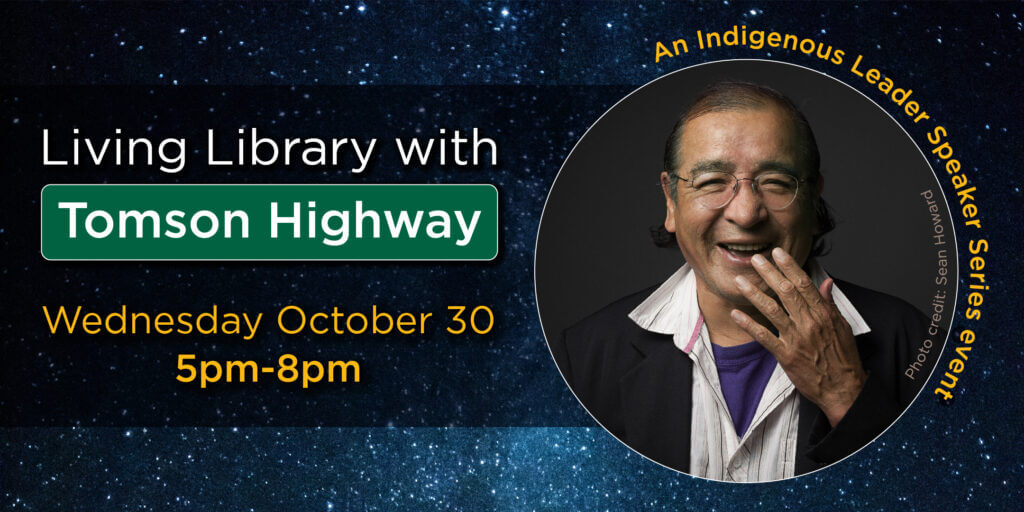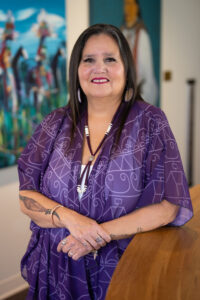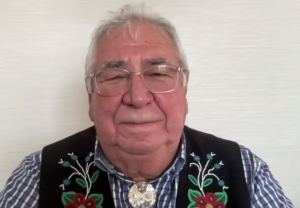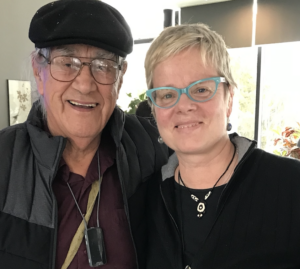Indigenous Leader Speaker Series
Upcoming Speakers:
To be announced.
Past Speakers:
Indigenous Student Leadership in Business and Entrepreneurship Panel
When it took place: Tuesday, March 11th, 10:30am-12:00pm
Presented by the School of Business & Hospitality and Learning and Teaching Services, you are invited to join us for an inspiring panel discussion featuring Indigenous student leaders who are making their mark in business and entrepreneurship. This event will highlight the journeys, challenges, and successes of Indigenous students enrolled in the School of Business & Hospitality and who are entrepreneurs and community innovators in their own right.
We extend a special invitation to faculty and employees working in the School of Business & Hospitality, though this panel is open to students, employees and community alike.
Come be part of the conversation, gain inspiration, and connect with student leaders who are sure to transform your perspective on student experiences, Indigenous entrepreneurship and what possibilities exist to advance economic reconciliation.
Living Library with Tomson Highway

When it took place: Wednesday October 30th
Please join Algonquin College in welcoming novelist, playwright, musician, composer, and one of the most celebrated cultural figures of our time, Tomson Highway for a living library experience!
More about the event: In a Living Library, individuals become “living books,” sharing their personal experiences and insights to promote understanding and challenge preconceived notions. This intimate event invites participants to listen and engage as Tomson Highway shares stories from his life and from his literary works. Through open dialogue, attendees will gain a deeper appreciation of Highway’s immense contributions to literature and the performing arts worlds, and the broader social conversations his work inspires.
To find out more about the marvellous Tomson Highway, visit https://tomsonhighway.ca/
This event was presented in collaboration with Learning & Teaching Services, The Algonquin College Library, and Indigenous Initiatives.
Dr. Beverly Jacobs
C.M., LL.B., LL.M., PhD
Mohawk Nation of the Haudenosaunee (Iroquois) Confederacy, Bear Clan
Please be advised that this video will discuss graphic content relating to colonialism, violence and trauma. Below are resources viewers can consult should they need support.
Resources Available to Learners & Employees:
Counselling Services and supports for learners
Counselling Services and supports for employees
Mamidosewin Centre and Indigenous Community Supports
https://www.hopeforwellness.ca/
 Dr. Beverly Jacobs is the Senior Advisor to the President on Indigenous Relations and Outreach at the University of Windsor and an Associate Professor in the Faculty of Law. She held Associate Dean (Academic) and Acting Dean appointments in the Faculty of Law. She practices law part-time at her home community of Six Nations of the Grand River Territory. Her research focuses on Indigenous Legal Orders, Indigenous Wholistic Health, Indigenous Research Methodologies, and Decolonization of Eurocentric Law. Beverly has obtained a Bachelor of Law Degree from the University of Windsor in 1994, a Master of Law Degree from the University of Saskatchewan in 2000 and a PhD from the University of Calgary in 2018. Beverly is also a consultant/researcher/writer/public speaker. Her work centres around ending gendered colonial violence against Indigenous people and restoring Indigenous laws, beliefs, values, and traditions. A prolific scholar, her published work has earned her numerous awards; her research combined with her advocacy has translated into national and international recognition.
Dr. Beverly Jacobs is the Senior Advisor to the President on Indigenous Relations and Outreach at the University of Windsor and an Associate Professor in the Faculty of Law. She held Associate Dean (Academic) and Acting Dean appointments in the Faculty of Law. She practices law part-time at her home community of Six Nations of the Grand River Territory. Her research focuses on Indigenous Legal Orders, Indigenous Wholistic Health, Indigenous Research Methodologies, and Decolonization of Eurocentric Law. Beverly has obtained a Bachelor of Law Degree from the University of Windsor in 1994, a Master of Law Degree from the University of Saskatchewan in 2000 and a PhD from the University of Calgary in 2018. Beverly is also a consultant/researcher/writer/public speaker. Her work centres around ending gendered colonial violence against Indigenous people and restoring Indigenous laws, beliefs, values, and traditions. A prolific scholar, her published work has earned her numerous awards; her research combined with her advocacy has translated into national and international recognition.
Dr. Jacobs is a former President of the Native Women’s Association of Canada (elected 2004 to 2009). She is nationally known for her work and commitment to Indigenous politics in Canada, is universally respected in this regard, and is understood to be a tireless and formidable advocate. She is a leading voice and an expert with respect to a multitude of issues facing Indigenous people in her community, in Ontario, across Canada and on an international scale.
Dr. Jacobs received the Laura Legge Award from the Law Society of Ontario in 2021 and she was inducted as a Member of the Order of Canada in 2018. She received two awards from Mohawk College in 2018: Alumni of Distinction Award and Distinguished Fellow – Adjunct Professor. In her first year of teaching at the Faculty of Law, University of Windsor in 2017, she received an Office of Human Rights, Equity & Accessibility, Human Rights and Social Justice Award. In 2016, she received a Franco-German Prize for Human Rights and the Rule of Law from the Governments of France and Germany for her human rights fight for the issues relating to missing and murdered Indigenous women and girls in Canada. In 2008, she also received a Governor General’s Award in Commemoration of the Person’s Case, an Esquao Award from the Institute for the Advancement of Aboriginal Women and a Canadian Voice of Women of Peace Award from the Canadian Department of Peace Initiative and Civilian Peace Service Canada.
Tony Belcourt
February 26, 2024
 “We are a people with roots as deep and as long as any other Indigenous people in North America,” said Tony Belcourt as he addressed a small crowd of about 30 participants as part of Monday’s Indigenous Speaker Series.
“We are a people with roots as deep and as long as any other Indigenous people in North America,” said Tony Belcourt as he addressed a small crowd of about 30 participants as part of Monday’s Indigenous Speaker Series.
Belcourt was speaking about “What Makes Métis Identity.” He provided analysis and detail from Métis history dating back to the 1700s and including photos and information later from 1846, the first records of his family’s history.
During his talk, Belcourt addressed the European settlement of Canada and how that effected the Métis residents who occupied the land. He spoke about Louis Riel, the creation of Manitoba and Alberta and how treaties were “established unfairly resulting in people losing their land to speculators.”
Belcourt spoke of the discrimination Métis people faced and how it wasn’t until 1928 with the establishment of the Métis Association of Alberta that the Métis people began to advocate for themselves. This led to the formation of the Native Council of Canada in 1970 to lobby for Métis and non-status Indians and culminated with Section 35 of the Constitution Act of 1982. That specifically recognized and affirmed the existing aboriginal and treaty rights of the aboriginal peoples of Canada. In section 35, the term “aboriginal peoples of Canada” refers to the First Nation, Inuit and Métis peoples of Canada.
“I think it’s an urgent obligation of all schools to start doing their own research and develop their own curriculum to truly express all Indigenous people in Canada, not just First Nations,” said Belcourt. “Our organizations have all this documentation and would be willing to help anyone who wants to develop course materials. There’s too much misunderstanding going on out there because of a lack of information and knowledge about the Métis people. It’s important for all institutions.”
Albert D Marshall & Louise Zimanyi – Walking Together
September 28th, 2023
 Elder Albert Marshall is from the Moose Clan of the Mi’kmaw Nation, Eskasoni First Nation in Unama’ki (Cape Breton), Nova Scotia. A fluent speaker of Mi’kmaw, he has brought forth the concept of Etuaptmumk / Two-Eyed Seeing, the gift of multiple perspectives, which braids the strengths of both Indigenous and non-Indigenous ways of knowing together for the benefit of all.
Elder Albert Marshall is from the Moose Clan of the Mi’kmaw Nation, Eskasoni First Nation in Unama’ki (Cape Breton), Nova Scotia. A fluent speaker of Mi’kmaw, he has brought forth the concept of Etuaptmumk / Two-Eyed Seeing, the gift of multiple perspectives, which braids the strengths of both Indigenous and non-Indigenous ways of knowing together for the benefit of all.
Louise Zimanyi is of French-Canadian and Hungarian descent and lives as a guest in Tkaronto/Toronto, Treaty 13 territory. As a professor and researcher, she is co-learning from and with the Land and wise teachers, co-transforming early childhood pedagogy and practice.
Elder Albert Marshall and Louise Zimanyi are co-authors of a new children’s picture book, Walking Together (Annick Press, 2023). This innovative picture book introduces readers to the concept of Etuaptmumk/Two-Eyed Seeing, following a group of young children connecting to nature as teacher, nurturing respectful, reciprocal and responsible relationships.